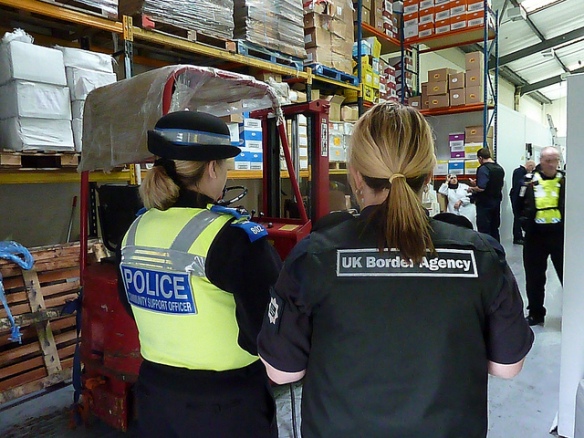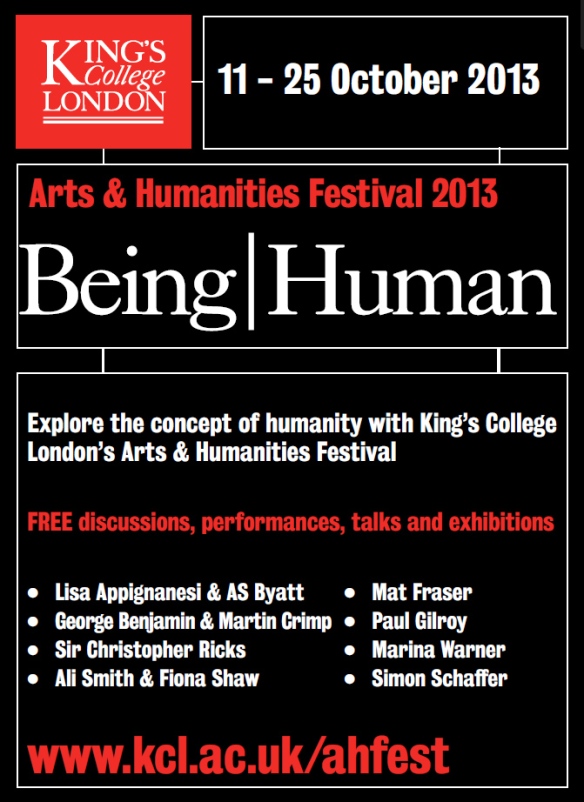Ahead of her book launch and panel discussion at the Festival on Friday, Lecturer in Culture, Digital Humanities & Creative Industries Btihaj Ajana explains why it’s time we reconsidered our approach to immigration and asylum issues:
Immigration is a hot topic at the moment. Over the last few months, the UK Home Office has been running a series of controversial schemes including the immigration arrest adverts, immigration spot-checks targeting ethnic populations in London, and most recently the ordering of gay and lesbian asylum seekers to ‘prove’ their sexuality. There is nothing new about the fear-mongering attitudes and negative sentiments currently surrounding immigration issues in Britain and elsewhere. Historically, immigration has always been a sensitive topic as it inevitably calls into question issues of identity, difference, belonging, entitlement, race and so on. These recent schemes, however, are representative of a larger socio-political shift in which a new kind of imaginary is emerging; an imaginary that is shaped by an increasing sense of suspicion towards the ‘other’ and the ‘normalisation’ of various illiberal practices. Fear is becoming a powerful tool of governing and regulating the population. Whether in public discourses, political debates or news media, immigrants and asylum seekers are increasingly being constructed as an existential threat to the well-being and security of the nation. As such, reactions to immigration and asylum issues are currently caught up in a vicious circle whereby governments are responding to public anxieties with more fear-driven measures which, in turn, only ends up fuelling more anxieties and negative attitudes. Fear seems to be, at the moment, a dominant relational affect and a major binding force between citizens and the State.
At one level, the problem is undoubtedly that of (mis-)representation and decontextualisation. Within mainstream political discourses and news reports on issues of immigration and asylum, there is a marked deficit in positive representation and constructive media reporting, coupled with a lack of factual analysis that is capable of addressing this misbalance. Moreover, these debates and reactions often tend to tear issues of immigration and asylum away from their historical and political context. One should not ignore the fact that the enduring legacies of colonialism together with a rising neoliberal globalisation are all some of the undeniable factors that have been deepening the world’s staggering economic inequalities and socio-political problems, and thereby feeding into the wider contextual backdrop of asylum and immigration issues. Staging these issues as if they were stand-alone and decontextualised problems, that only concern ‘others’, is rather irresponsible and misses the bigger picture.
It is about time that so-called citizens begin to question whence their rights and privileges come and to what extent these privileges might be oppressive to others. Parenthetically, this is not about fostering a culture of blame or guilt but a call for a collective and more informed, responsible, accountable and ethical response to issues that do not only touch those who are portrayed as others but the entire fabric of humanity.
More on these issues will be discussed during the event Human Others taking place this Friday (18 October) at 6.30pm in the Safra Lecture Theatre. Book your tickets here






